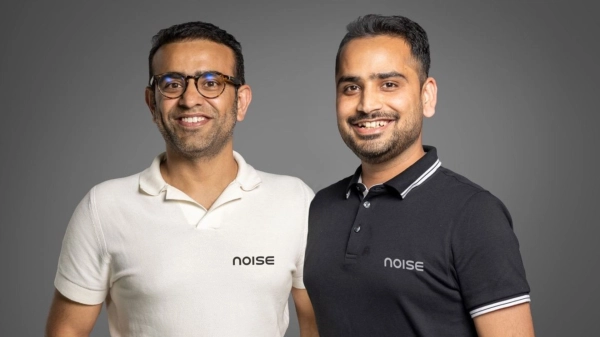Digitalization of Healthcare Processes and Workflows Imperative for Progress: Dr Priyanka Chauhan

The National Accreditation Board for Hospitals & Healthcare Providers (NABH) is a constituent board of the Quality Council of India (QCI), established to set quality and patient safety benchmarks in India's healthcare sector. As a premier body, NABH provides accreditation and certification to healthcare organizations, ensuring they meet globally recognized standards.
In September last year, during the NABH Patient Safety Conference (NPSC '23) on World Patient Safety Day 2023, NABH unveiled six new standards and signed three strategic MoUs. Notably, they introduced the 1st Edition of Digital Health Accreditation Standards for Hospitals, alongside other key announcements in patient safety and digital healthcare.
On July 23, NABH released the draft of the 1st Edition Certification Standards for HIS and EMR Systems. Over 325 HIS/EMR companies and hospital representatives attended the industry consultation, highlighting a commitment to advancing healthcare technology and improving patient care.
In an exclusive interview, Arti Ghargi, Sr Industry Analyst, DHN, speaks to Dr Priyanka Chauhan, Sr Product Manager of Digital Health Standards at NABH. Dr Chauhan brings extensive expertise in digital health and plays a pivotal role in shaping the standards that ensure the quality and safety of healthcare services in India.
Today, we will delve into NABH's critical role in the Indian healthcare landscape.
Q: NABH released the first edition of Digital Health Standards in September 2023. Could you tell us how important it is to set Digital Health Standards in India?
A: Setting Digital Health Standards in India is crucial as we strive towards the Viksit Bharat 2047 vision. Digitalization of healthcare processes and the workflows in hospitals is not just important; it's imperative for progress. NABH, as the premier national body for hospital accreditation and certification, plays a pivotal role in this transformation.
The COVID-19 pandemic underscored the urgent need for standardized digital workflows in hospitals. This led to the release of the Digital Health Standards in September last year, marking a significant step towards enhancing the efficiency, safety, and quality of healthcare through digital means.
Q: What was the process involved in creating the Digital Health Standards?
A: Creating the Digital Health Standards involves an extensive and thorough process. We start by identifying and addressing existing gaps, conducting market research, and consulting industry experts. Key contributions from national organizations such as the National Health Authority's ABDM and National Resource Centers (NRC) are integral.
NABH benchmarks standards globally and engages with hospitals to ensure feasibility. Multiple drafts are reviewed by the technical committee, followed by public consultation to incorporate feedback. This rigorous process, typically spanning one to two years, culminates in the release of comprehensive, well-vetted standards.
Q: We have seen best practices in the West. Was it a challenge to create best practices tailored to India? How did NABH take up that challenge?
A: Absolutely. Analyzing the unique needs of the Indian healthcare industry is a crucial part of our process. While the US has a higher level of adoption due to its early start with the Meaningful Use program in 2009, we recognize the necessity of tailoring standards to fit India's distinct environment.
We study Western benchmarks and best practices extensively, then adapt and refine them to align with the Indian context. This involves understanding the specific nuances and requirements of the Indian healthcare system to ensure our standards are both relevant and effective.
Q: How is NABH partnering with different associations for the adoption and promotion of digital health standards?
A: NABH has incorporated the standards set by the National Health Authority (NHA) into our digital health guidelines, ensuring alignment with ABDM requirements. We have also acknowledged the valuable work of NRCeS.
To address the technical aspects of implementation, we’ve partnered with CHIME India. Their members receive specialized assessor training, enabling them to effectively support and promote these standards within hospitals and for EMR and HIS systems in India.
Q: What does this assessor training and certification program include?
A: The program spans three days. Day one introduces participants to NABH’s body of work and covers essential aspects of digital health standards, including applications such as LIS and RIS, and technical details including HL7 and FHIR.
Day two delves into the core structure of NABH standards, focusing on objectives, interpretation, and assessment methods. Assessors receive practical examples to ensure they understand the broad spectrum of scenarios they may encounter, from rural charitable hospitals to advanced facilities in Tier-I cities.
Day three involves a practical application, where assessors submit their findings and take an examination to validate their training.
Q: What are the next steps for NABH to further digital health standards in India?
A: NABH’s Digital Health Standards are unique globally, aligning with the 5th edition of hospital standards. We are now developing standards for EMR and HIS applications, with a draft released for industry feedback.
These standards will integrate seamlessly with existing hospital guidelines, enhancing the overall ecosystem. By adopting standardized or accredited HIS/ EMR systems, hospitals can more efficiently upgrade their processes and ensure consistent, high-quality care.
Q: How would you describe the digital health maturity of Indian hospitals?
A: The digital health maturity of Indian hospitals is progressing, yet remains diverse across the spectrum:
Varied Maturity Levels: While some hospitals have adopted advanced digital technologies and exceeded standards, others are at the foundational level, needing basic awareness about digitalization.
Population Scale: Given India’s 1.6 billion population, the scale of healthcare needs is enormous. The challenge lies in scaling digital health across diverse settings, from urban Tier 1 hospitals to rural Tier 2 and Tier 3 facilities.
NABH’s Comprehensive Approach: NABH is committed to uplifting digital health standards across all hospital tiers. Our focus extends beyond major cities to ensure equitable benefits nationwide, including improved patient care, reduced waiting times, and enhanced quality.
Beyond Compliance: Effective digital health requires more than adherence to standards; it demands meaningful integration of digital applications. Significant effort is needed to achieve this, and NABH is dedicated to leading this transformative journey.
Stay tuned for more such updates on Digital Health News


















